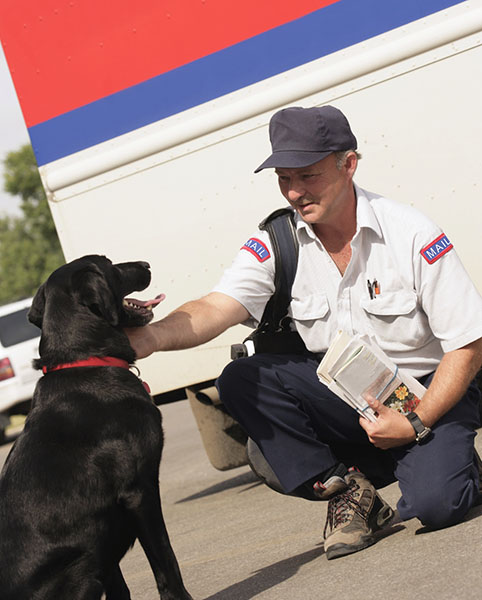 Imagine this scenario: You’ve recently brought home a cute, fluffy and playful 8-week-old mixed breed puppy you named Odie. Today, Odie chewed up your lawn chair, peed on your carpet, left a little brown surprise on the front porch and lightly bit your son during playful activity. What went wrong? Without proper training, that lovable puppy turned into a troublemaker in no time. Odie was not socialized properly.
Imagine this scenario: You’ve recently brought home a cute, fluffy and playful 8-week-old mixed breed puppy you named Odie. Today, Odie chewed up your lawn chair, peed on your carpet, left a little brown surprise on the front porch and lightly bit your son during playful activity. What went wrong? Without proper training, that lovable puppy turned into a troublemaker in no time. Odie was not socialized properly.
Behavioral problems are one of the most common reasons pets are taken to animal shelters and put to sleep. The problem is mostly preventable with proper training and socializing. It’s a group effort that can strengthen the bond between you two.
The Learning Process
Socializing is when puppies learn about their environment, people and other animals. At six weeks of age, most puppies have full use of their smelling, visual and hearing senses. Like humans, they begin to store sensory information in their brain from positive and negative stimuli. Each time a new site, smell or sound is presented to them, they refer to their memory to come up with a positive or negative response. Think about a puppy’s first encounter with the mailman. If he’s exposed to the mailman in a favorable manner, every encounter afterward will be a breeze.
The most important stage of a pup’s learning phase takes place during the first six to 16 weeks of age. During this time, establish authority and teach them right from wrong. It is a very serious mistake to wait until a puppy is over six months old to begin training. Remember, a puppy’s attitude is typically molded by the time he or she is 16 weeks old. Keep in mind that all puppies learn at different rates and have individual personalities, so be patient and encouraging throughout the learning process.
Talk to Us
If you have any questions or concerns about your puppy’s behavior or training, feel free to contact us at 956-787-2709. We would be more than happy to address your concerns during a scheduled appointment with one of our experienced veterinarians.
